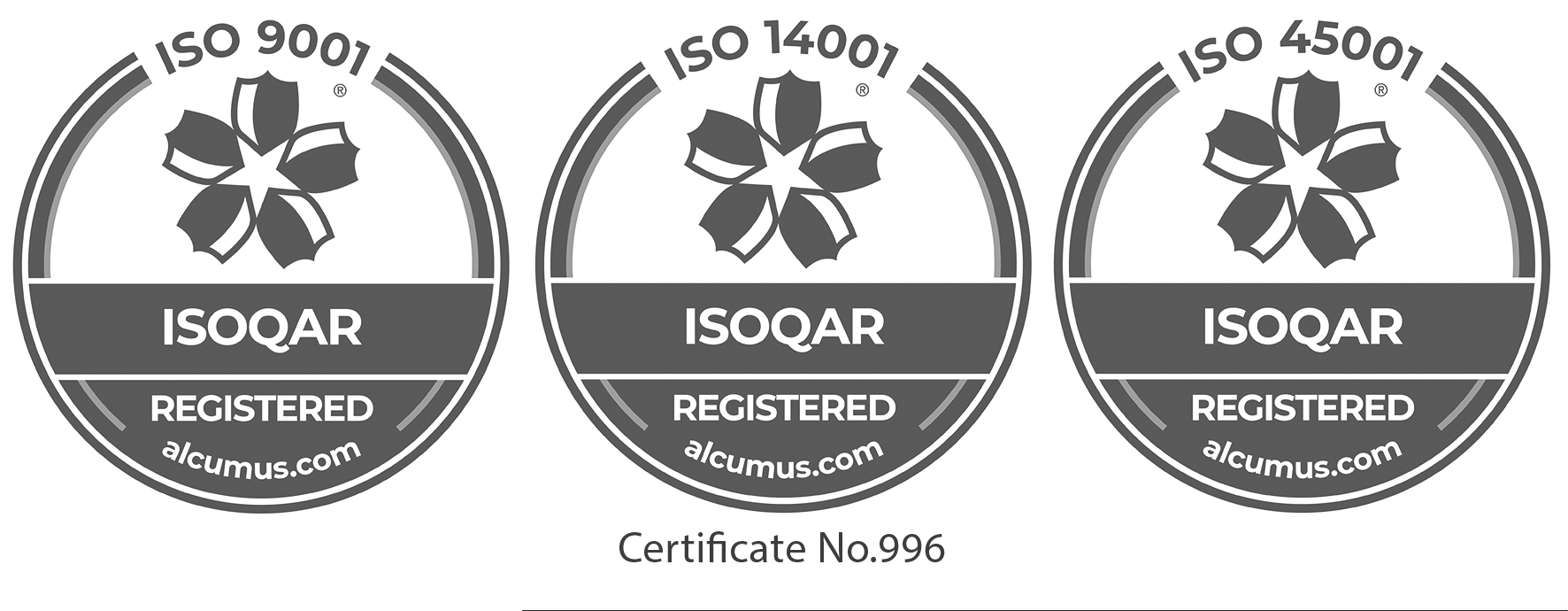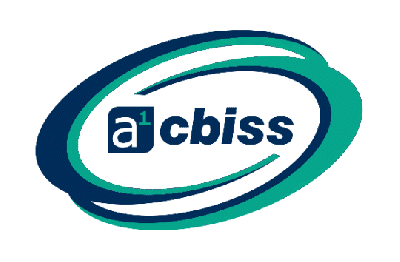Continuous Emissions Monitoring Systems
Working with a1-cbiss, you will benefit from a continuous emissions monitoring systems supplier that has the expertise and experience to apply the relative legislation & permit requirements to your process.
We’ve helped 100s of customers procure the right system, benefit from ongoing proactive maintenance and manage cost control throughout the lifetime of the system.
Introduction to Emissions Monitoring
In the UK, large combustion, and waste incineration plants (EfW and biomass) must operate with a permit within the strict conditions of the Industrial Emissions Directive (IED 2010/75/EU).
The IED obligates plant operators to use Best Available Techniques (BAT) in emission monitoring. These techniques are outlined in Best Available Techniques reference documents (BREFs).
To monitor pollutants emitted to atmosphere and to ensure measurement parameters are within the permit, this is achieved using a Continuous Emissions Monitoring System (CEMS).
The Importance of MCERTS
MCERTS is the Environment Agency’s (EA) Monitoring Certification Scheme which covers monitoring activities.
Site operators using MCERTS approved monitoring equipment can take great confidence that it conforms to high performance International and European standards.
For sites that have permits issued by the EA, and fall under the Emissions Monitoring Directive (IED), Continuous Emissions Monitoring Systems (CEMS) should be installed.
Waste Incineration
In the UK, BREF (2019) requires WID plants to comply with the new emisison limits by 2023.
Waste incineration plants must meet emission limit values for selected pollutants:
- Sulphur Dioxide (SO2)
- Nitrogen Oxides (NOx)
- Hydrogen Chloride (HCl)
- Ammonia (NH3) – When plant uses SNCR to reduce NOx
- Carbon Monoxide (CO)
- Hydrogen Fluoride (HF)
- Hydrocarbons
- Particulates
- Mercury
- Dioxins
- Biogenic CO2
How to Select the Right CEMS
Legislation & Permit Knowhow
CEMS are a regulatory requirement to control emissions to atmosphere.
A sensible strategy for selecting the right CEMS to satisfy regulatory requirements is to start with your permit.
We help companies from the energy from waste and combustion sectors to:
- understand permit requirements now and what’s likely to happen in the near future – are there future proof opportunities?
- apply the relevant legislation to ensure the correct sampling techniques are applied
- implement the correct analytical methods based on the pollutants they need to monitor.
For example, if your permit requires ammonia to be monitored, we would recommend the MIR-FTIR because:
- It’s MCERTS approved
- Compliant with QAL1 & QAL3*
- Has the certified ELV ranges
- Accurate and stable technology in tough conditions
- Allows for upgrades to gas library
Project Management
Having the right CEMS is a complex process.
a1-cbiss has the experience of successfully delivering CEMS projects.
From initial contact, we like to meet your engineers, get a feel for your plant to understand the site conditions which will help to identify any issues that aren’t written into the permit.
The project is managed to keep you fully up to date with progress, communicate unexpected delays, ensures all equipment is installed to specification and meets timescale expectations.
Design
Following the site survey, our in-house design team discuss your project with the concept team to be able to design a system that meets the needs of your requirements using Best Available Techniques (BAT).
We consider everything from:
- gas analyser technology,
- certified ranges,
- product approvals,
- site conditions and available space,
- analyser housing and delivery
Installation & Commissioning
We undertake Factory Acceptance Tests (FATs) before equipment leaves our premises.
We take care of the delivery of the CEMS enclosure. Most enclosures are loaded by crane onto a flatbed truck and delivered to site before being manoeuvred into position.
Once onsite, we perform Site Acceptance Tests (SATs) to ensure total customer satisfaction and adherence to technical specification.
CDAS
CDAS is a fully MCERTS accredited real-time CEMS data acquisition and reporting software. The data is used to generate reports, alarms or control a process for the purpose of satisfying EN14181.
CEM Servicing
Problems are less likely to arise if your CEMS have a regular service plan.
All customers of a1-cbiss are supported by the UK’s largest service network which offers around the clock reliability and performance.
We offer an initial healthcheck service for customers who haven’t had a regular service.
Flue Gas Emissions Analysers
MCERTS Accredited
If your permit dictates that your site requires an accredited analyser, a1-cbiss have a range of MCERTS accredited Continuous Emissions Monitoring analysers that guarantee to perform within certified ranges as specified in EN 15267-3.
Technology
The process conditions require gas analysers to use the most reliable technology to detect pollutants. a1-cbiss can provide FTIR, NDIR GFC, FID, CLD and TDL as the most accurate technologies which gives you the confidence that the system will perform over time.
Future Upgrade
Our in-situ and extractive CEM analysers record all the parameters likely to appear on your site permit – NH3, NO, NO2, N2O, CO, CO2, SO2, HCl, HF, CH4, H2O, O2 and TOC. Our FTIR has a large gas library which allows for future upgrades where new gases can be added to your EN14181 reporting schedule.
Envea Brand
CEM gas analysers are manufactured by Envea in France. Envea emissions monitors are renowned for their accuracy, reliability, leading-edge technology, and innovation.
Particulate CEMS Analysers
MCERTS Accredited
If your permit dictates that your site requires an accredited particulate CEM, a1-cbiss have access to a range of QAL1 approved CEMS specified in EN 15267-3 and, accredited to MCERTS and TUV.
Technology
ProScatter™ technology efficiently evaporates any water vapour in a flue gas samples providing reliable and accurate dust concentration measurements.
ElectroDynamic™ technology is unaffected by contamination on the sensor rod (which may cause signal drift in other types of probe electrification devices) and suitable for monitoring conductive dusts which usually coat the sensor such as carbon black.
Reach Across the Widest Stacks for Accuracy
The longest Particulate Continuous Emissions Monitoring probes reach up to 15m across the duct.
Envea Brand
CEM dust analysers are manufactured by Envea in France. Envea emissions monitors are renowned for their accuracy, reliability, leading-edge technology, and innovation.
Biogenic CO2 Sampler
User Benefits
- Provides full compliance with the EN standard
- Technologically advanced in comparison to the current system
- Continuous and therefore fully representative of the feedstock.
- Fully automated and requires no intervention (other than the technicians to replace sample cartridge monthly).
Raw Gas Measurement
Control Emissions Earlier in the Process
Control of stack emissions are no longer enough to ensure compliance with regulatory ELVs. Raw gas measurement provides the opportunity to optimise the process by recording the level of pollutants in the gas stream to enhance abatement control.
Lower the Cost of Reagents
Raw gas measurement analysers provide you with the level of pollutants there are in the gas stream prior to abatement. It can, therefore, help control how much reagents are needed without the risk of overdosing (and overpaying).
Dependable, Low Maintenance
TDL method is a non-contact optical, laser technology. The sensor stays protected from any contamination or corrosion and so the maintenance operation and the cost of operation are very low compared to other technologies.
Bulk Flow Measurement
There are many benefits to measuring and monitoring the flow of powders, granules, and dust in bulk handling processes.
Maintain Flow
Reliable limit level monitoring provides a consistent flow of fuel within the falling chute to guarantee a constant incineration process.
Control Cost of Reagent
Regulate accurate volumes of reagents in the scrubber to manage cost control.
Accurate Flow Speed
Measures the volume of solid materials to regulate speed control.
Identify Blockages to Maintain Efficiency
Flow detectors measure the continuous flow of materials and alert if a jam or blockage has occurred.
Prevent Overflowing
Continuous level measurement is necessary.
Flow Measurement Products
Syngas Monitoring
Determine Calorific Value
Syngas systems from a1-cbiss measure the constituents of the gaseous fuel produced by gasification or pyrolysis to calculate whether the calorific value is eligible for support under environmental emissions trading schemes.
Effective Filtration
Syngas is notoriously difficult to monitor due to the dust and heavy tars in the process. Effective gas conditioning and filtration is required to prepare the gas sample ready for analysis.
DAHS
CDAS is an MCERTS certified data acquisition handling software that collects and processes environmental data for customisable display whilst producing reports to meet site & environmental agency standards.
Guarantee Credibility with MCERTS Certification
a1-cbiss have developed the most advanced DAS package. MCERTS provides the quality, performance standards and test procedures for the development, validation, and maintenance of software. CDAS is fully MCERTS accredited (parts A, B, C1 & C2).
Flexible Data Handling & Configuration
CDAS allows the user to create user defined profiles so you only see what you want to see. You can view data at different stages processing (Raw, Calibrated, Corrected, Adjusted).
Real-Time Trending for Early Warnings
CDAS tracks Emission Limit Values (ELV) to allow you to act before limits are exceeded.
Easily Produce Configurable Site or Agency Reports
Produce timed, mass or percentile reports. EN14181 QAL3 reports.
Gas Conditioning
Prevent Analyser Damage
Gas analysers can be damaged by untreated gas. Conditioning the gas sample using filters and coolers prevents potential damage.
Extend Gas Analyser Life Expectancy
Gas analysers will operate for longer if they are continuously presented with a conditioned gas sample.
Guarantee Consistent Results
If gas is treated prior to sampling, results are likely to be more consistent over time.
Service Support Within Continuous Emissions Monitoring Systems
On-site service is available for all Continuous Emissions Monitoring Systems. Our service department provides repair, calibration, preventative maintenance, software support and remote diagnostics.
We provide a reliable nationwide service co-ordinated from our dedicated help-desk team that will ensure works are planned at a time that is convenient for you.
What Do Our CEMS Service Agreements Include?
Routine Service Visits
Technical Support over phone, email, Microsoft Teams
Rapid Response 6 Hour Engineer Call Out
Spare Parts Stock
Remote Support & Diagnosis
CDAS Data Acquisition Software
Functional & Linearity Checks (BS EN14181)
CEMS Training Courses
MCERTS Accredited Stack Emissions Testing
BS EN 14181 QAL2 & ASTs
Recognised by ISO Certification
As a systems integrator of specialist continuous emissions monitoring systems, we strive to deliver the highest quality with everything that we do.
We are proud to maintain our ISO certificates which recognises our quality processes, environmental impact, and our rigorous health and safety programme.
Our CEM systems and analysers have an EN 15267 certificate, the European Standard for Quality Assurance of Continuous Emission Monitoring Systems.

Case Study - CO2 In Breweries
Learn about the hidden dangers of carbon dioxide (CO2) in breweries and the essential measures to ensure safety. Uncontrolled levels of CO2 can lead to severe health hazards, even suffocation, making proper monitoring absolutely crucial. Discover how the accumulation of CO2 during fermentation and storage processes can create hazardous pockets. Implementing a comprehensive gas detection system, including fixed CO2 sensors and personal detectors, is crucial to protect brewery personnel.
Case Study - a1-cbiss Engineer a Brewery Carbon Dioxide Monitoring System
Discover how a1-cbiss helped two major breweries in the UK ensure health and safety compliance with a tailored Carbon Dioxide monitoring system. With elevated CO₂ levels during fermentation, a1-cbiss designed a solution using advanced gas detection technology. The system provides visual warnings, integrates with ventilation systems, and offers real-time data acquisition and reporting.
Explore the Environment
Discover the system you need in place.
Talk with the Experts
Contact us - Our team of application specialists can assist you with system design, installation, maintenance, and repair. As a systems integrator, we provide end-to-end support to ensure your facility has a reliable and effective gas detection system in place.
Sign up for more information - For more information on protecting your staff from the dangers of gas leaks, sign up for our emails.

